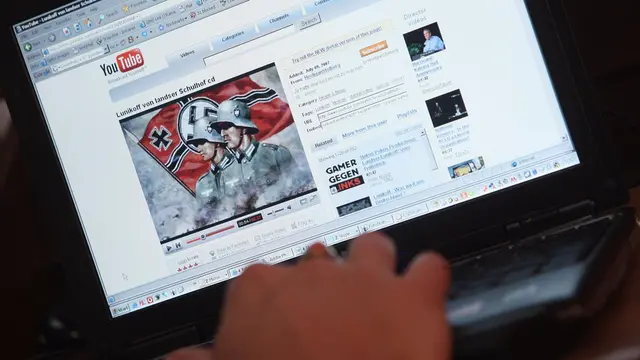YouTube is still dealing with headaches related to extremist and otherwise hateful videos infesting its site.
Parent company Google's most recent attempt at a fix addresses content that exists in a sort of gray area — it doesn't violate the site's policies per se but it does "contain controversial religious or supremacist content."
In those cases, the videos will now be relegated to a "limited state," a purgatory where they'll be less visible to the casual browser, never appear in automated recommendations, and lose out on features like comments, likes, and suggested videos.
Oftentimes, videos that YouTube simply takes down are subsequently re-uploaded with tweaks meant to shield them from detection by the site's automated tracking. This new soft ban seems to be an attempt to avoid that game of whack-a-mole.
The move comes as the site is taking a more aggressive stance towards redlining controversial videos from its advertisers. The effort started when hundreds of major brands staged a boycott from the site this spring following reports their ads had been attached to hate group and terrorist propaganda.
The boycott ended up having little financial impact on Google, but it's still facing pressure to clean up the site. The United Kingdom's home secretary, Amber Rudd, traveled to San Francisco this week to urge Google and other tech giants to do more to combat extremism on their platforms.
Google's previous efforts include beefing up its video policing staffs and introducing machine learning to better recognize and root out patterns common among certain types of videos.
The company said Thursday that it will also start more widely implementing a program that redirects people who search for extremist videos to a set playlist of content meant to counter those messages.
It's also bringing on more than 15 NGOs to shape its efforts going forward, including the Anti-Defamation League, the No Hate Speech Movement, and the Institute for Strategic Dialogue.
Some popular YouTube users say Google's efforts have gone too far, blocking legitimate content that's unfairly judged from collecting ad money. Matan Uziel, who runs a channel featuring survivors of sexual assault talking about their traumatic experiences, says his videos have been blocked since the crackdown began despite his repeated appeals to the company.
(MASHABLE)
 简体中文
简体中文

